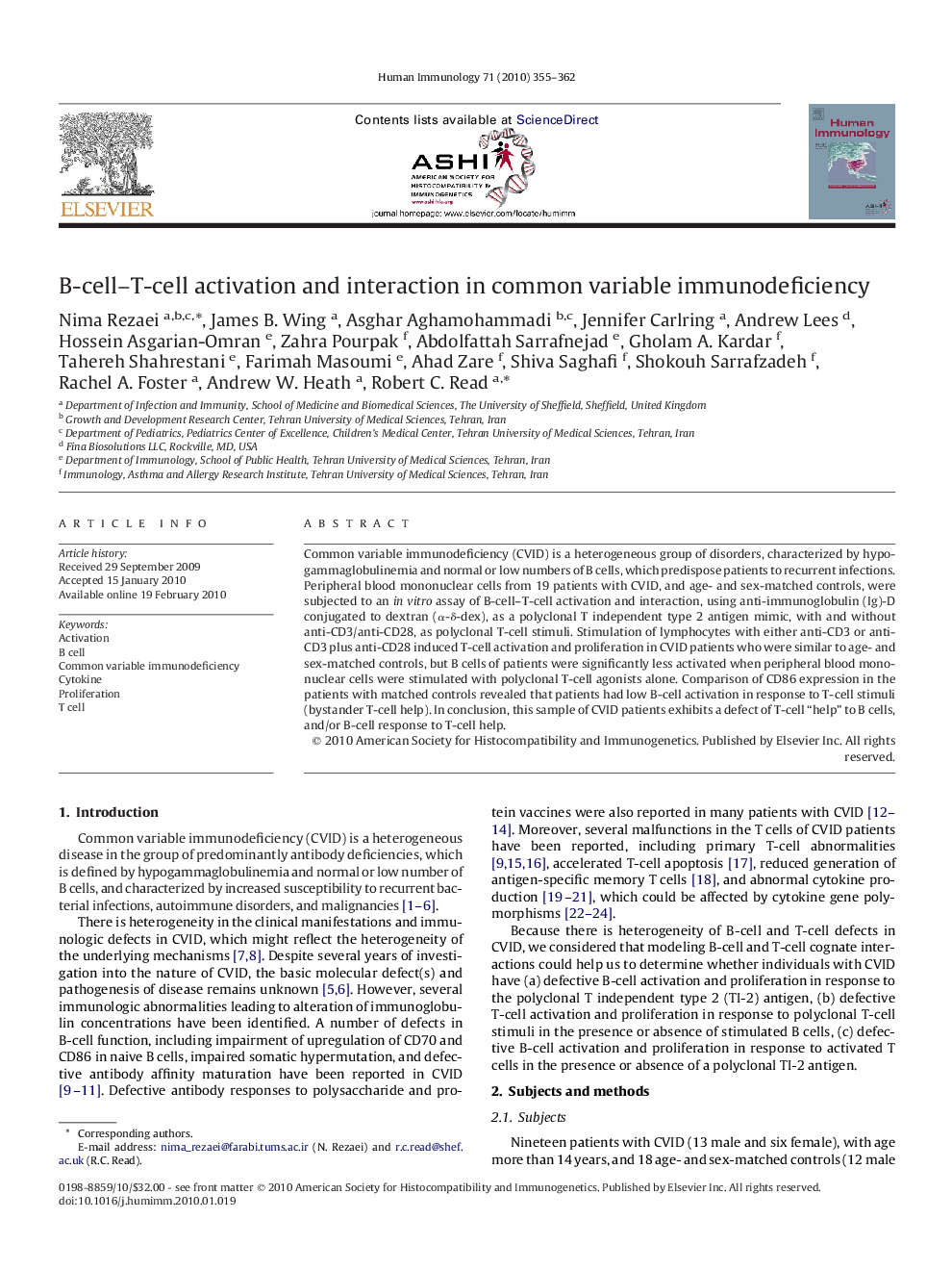| Article ID | Journal | Published Year | Pages | File Type |
|---|---|---|---|---|
| 3351166 | Human Immunology | 2010 | 8 Pages |
Common variable immunodeficiency (CVID) is a heterogeneous group of disorders, characterized by hypogammaglobulinemia and normal or low numbers of B cells, which predispose patients to recurrent infections. Peripheral blood mononuclear cells from 19 patients with CVID, and age- and sex-matched controls, were subjected to an in vitro assay of B-cell–T-cell activation and interaction, using anti-immunoglobulin (Ig)-D conjugated to dextran (α-δ-dex), as a polyclonal T independent type 2 antigen mimic, with and without anti-CD3/anti-CD28, as polyclonal T-cell stimuli. Stimulation of lymphocytes with either anti-CD3 or anti-CD3 plus anti-CD28 induced T-cell activation and proliferation in CVID patients who were similar to age- and sex-matched controls, but B cells of patients were significantly less activated when peripheral blood mononuclear cells were stimulated with polyclonal T-cell agonists alone. Comparison of CD86 expression in the patients with matched controls revealed that patients had low B-cell activation in response to T-cell stimuli (bystander T-cell help). In conclusion, this sample of CVID patients exhibits a defect of T-cell “help” to B cells, and/or B-cell response to T-cell help.
